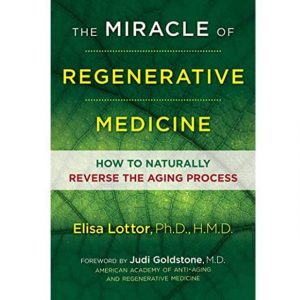Fitness and Nutrition: Choosing the Proper Diet and Exercise Plan
We all know how important fitness and nutrition are to health and well-being. Our bodies have to be well-nourished in order to function well and keep our immune systems at the ready. By the same token, our bodies are meant to move; we ignore this mandate at our own peril. At Southern California Center for Anti-Aging, we tailor our diets and exercise regimens to each client’s individual needs. Along with our other treatments, our nutrition and fitness programs are designed to renew your sense of vitality. We help patients across Southern California including Long Beach, El Segundo, West LA, Torrance, Hermosa Beach, Manhattan Beach, and Palos Verdes.
Nutrition: Diets to Promote Good Health
Once we have diagnosed your particular case through carefully administered lab tests, we prescribe the diet, or combination of diets, that we know will address your issues. Three excellent diets are the alternative diets to the South Bay Diet that we may prescribe are the Mediterranean Diet, the Anti-Inflammatory Diet, and the Anti-Aging Diet. All three are healthful and nutritious, but there are some differences in emphasis between them. Let’s compare the three.
The Mediterranean Diet
In addition to helping with weight loss, the Mediterranean Diet provides a great many health benefits. Research studies have shown that this diet is associated with:
- Reduced risk of heart disease
- Lower levels of LDL (“bad”) cholesterol
- Reduced risk of cardiovascular and overall mortality
- Reduced development of Cancer, Parkinson’s and Alzheimer’s diseases
There is also evidence that supplementing a Mediterranean diet with extra-virgin olive oil and mixed nuts may reduce the risk of breast cancer. Extra-virgin olive oil is the least processed form of the product and, therefore, contains the most antioxidants.
The studies referred to have persuaded many healthcare professionals, not to mention many scientific and medical organizations, to recommend the Mediterranean diet as one that is preventative of major chronic diseases.
What does the Mediterranean diet consist of?
Generally, based on the eating habits of those who live in the Mediterranean region, the diet includes a higher intake of antioxidant-rich fruits and vegetables, whole grains, pasta and rice, olive oil and nuts than Americans typically consume.
In Greece, for example, very little red meat is consumed. Fish and poultry are eaten twice or more on a weekly basis. On average, residents consume nine servings of fruits and vegetables daily. While bread is a normal part of the Mediterranean diet, it is usually whole grain. It is also dipped in olive oil, rather than spread with butter or margarine. Nuts, a healthy source of unsaturated fats, are also a regular component of the Mediterranean diet. Since nuts are high in calories, most people should not consume them in large quantities — a handful daily is a healthy addition. Heavily salted or candied nuts should be avoided. Another positive aspect of the Mediterranean diet is that it greatly limits salt intake, substituting delicious herbs and spices that are much are much more helpful in maintaining heart health.
Common Misconceptions
A common misconception is that the Mediterranean diet puts extreme limits on total fat consumption. In reality, the diet is designed to make sure the fats consumed are the kind that provide the greatest health benefits. The concept behind following a Mediterranean diet is to eliminate or sharply limit saturated fats and trans fats, both of which contribute to heart disease, and to instead consume olive oil, canola oil and nuts which contain a type of omega-3 fatty acid that lowers triglycerides and decreases blood clotting — attributes that moderate blood pressure, contribute to healthful blood flow and reduce the risk of sudden heart attack. Other sources of healthy fat are fatty fish, like lake trout, albacore tuna, herring, mackerel, sardines and salmon. A regular part of the Mediterranean diet, all are fine sources of omega-3 fatty acids.
The people who inhabit the Mediterranean region also usually consume wine daily, but in moderation. Moderation is usually defined as no more than 5 ounces daily for women (or men over 65) and no more than 10 ounces daily for men under 65. Alcohol consumption, however, is a problem for a great many people who are unable to limit how much they drink. For this reason, it is important for those who have personal or family histories of alcohol abuse, as well as those with liver or heart disease, or who are taking certain medications, to avoid wine and all other forms of alcoholic beverages.
The Anti-Inflammatory Diet
The Anti-inflammatory Diet is particularly helpful for clients dealing with inflammatory diseases like osteoarthritis, rheumatoid arthritis, inflammatory bowel disease, pelvic inflammatory disease, and immune-mediated inflammatory diseases. Even for those who are not dealing with acute or chronic disease, excessive inflammation can be the underlying, often unsuspected, the cause of many symptoms, including:
- Aching joints and muscles
- High blood pressure
- High blood sugar
- Headaches
- Sleep problems
- Allergies
- Skin issues
- Frequent abdominal pain and/or bowel issues
- Mood swings
- Low energy level
An anti-inflammatory diet focuses on reducing inflammation by providing anti-inflammatories found in natural plant products, such as whole grains, fruits, vegetables, nuts, and olive oil, and in fatty fish. Foods that are particularly helpful in reducing inflammation include:
- Almonds and walnuts
- Green leafy vegetables, especially spinach, kale, collard greens, bok choy
- Olive oil
- Salmon, mackerel, tuna, and sardines
- Soybeans
- Strawberries, blueberries, cherries, and oranges
- Tomatoes, celery, broccoli
- Blueberries, pineapple
- Walnuts
- Salmon
- Flax and chia seeds
- Celery
- Tumeric
- Ginger
What makes soybeans exceptional is that although they are vegetables, they contain protein, even more protein than other beans. This makes soybeans a good substitute for meat because they provide protein without the saturated fats and cholesterol of meat. Soybeans are also a fine source of fiber and fiber is an extremely important part of an anti-inflammatory diet.
Although some fruits are excellent anti-inflammatories, those following the anti-inflammatory diet should be careful to limit fruits with a heavy glycemic load.
In addition to recommending an anti-inflammatory diet for some of our patients, we also offer supplements that will help them reduce inflammation, including omega 3, vitamin D, cucurmin (tumeric), ginger, Resveratrol, and Lipoic acid.
The Anti-Aging Diet
Many aspects of the anti-aging diet are similar to the anti-inflammatory diet since inflammatory foods hasten wrinkles and other signs of aging. The anti-aging diet makes a point of cutting out inflammatory foods such as processed, packaged and fast foods, gluten and dairy, and sugar.
Hydration is essential for general health. It is also significantly helpful in preventing the dry skin and wrinkles that are among the most prominent signs of aging. While drinking sufficient quantities of water is necessary to maintain youthful vitality and appearance, omega fatty acids are also very important contributors to hydration. Healthy fats and oils actually become part of the cell walls of the skin, helping plump the skin so it feels smooth and appears glowing. These fats are found in:
- Salmon
- Walnuts
- Flaxseeds and chia seeds
- Coconut oil
- Olive oil
- Avocado
Wrinkles, in addition to being caused by dehydration, can result from the depletion of collagen and elastin in the skin that occurs as we age. Amino acids found in protein have been found to combat this problem. Reparative amino acids are found in:
- Meat
- Fish
- Eggs
- Tofu
- Grains, nuts and seeds
Leafy green vegetables, like broccoli, kale, spinach, and mustard greens, full of antioxidants, are also excellent providers of skin hydration. Juices made from these vegetables have become popular because they promote quick absorption of the nutrition they provide. Another source of skin hydration is phytoceramides, plant-based equivalents of lipids found naturally in the body. These can be taken as a supplement.
Preventing Dryness and Wrinkles
As we all know, exposure to sunlight also ages the skin. In addition to protecting your skin from ultraviolet rays, you can help to prevent dryness and wrinkles, and even reverse some damage, by limiting your salt intake and ingesting:
- Tomatoes, carrots, blueberries, and pumpkin
- Potassium-rich foods like potatoes, nuts, beans, legumes, meat, poultry and fish
- Rooibos tea
- Probiotic (fermented) foods like sauerkraut and yogurt
- Foods with high fiber content like brussel sprouts and beans
At Southern California Center for Anti-Aging we recommend diets that will help you to lose weight or maintain a healthy weight. This will rid your body of excessive inflammation, prevent disease, and slow the aging process. We also have a variety of dietary supplements, vitamins, and minerals available. Your treatment is tailored to remedy defects we find in your lab tests, such as vitamin or mineral deficiencies, presence of excessive fatty acids, oxidative stress markers, inflammatory markers and free radicals.
Fitness
We all know that exercise is an important part of keeping healthy. Along with a healthy diet, exercise assists in keeping our bones strong, our muscles toned, our lungs and hearts functional, our libidos active, and our minds alert.
At Southern California Center for Anti-Aging, we promote good health by recommending exercise regimens suited to each particular client. Your goal, your age, and your physical condition are the basis of recommendations. We may refer you to a personal trainer, recommend exercise at a gym, pursue a sport of your choosing, or engage in exercises at home. If your personal goal is to lose weight, we start you with aerobic exercise at 80 percent of your maximal heart rate.
If you want to make major improvements in your health in regard to your weight, muscle tone, and skin texture, and you are eager to experience renewed energy and enhanced mood, Southern California Center for Anti-Aging is the place for you. Not only will we help you shed pounds and dry skin; we will help you shed years.
Call 424-543-2869 to schedule your free 15 minute consultation in person or by phone
Our Torrance Office Also Serves Redondo Beach, Palos Verdes, Hermosa Beach, Manhattan Beach, Long Beach, West LA, El Segundo And The Surrounding Areas
Contact Us
Contact Us Online
Our Office
— Alice Tami
— Arlenne Medina
Board Certified Internal Medicine
Dr. Judi Goldstone is both a board-certified physician and an expert in anti-aging and weight loss. She is dedicated to helping men and women attain their best possible health using the most up-to-date, advanced medical approaches.


